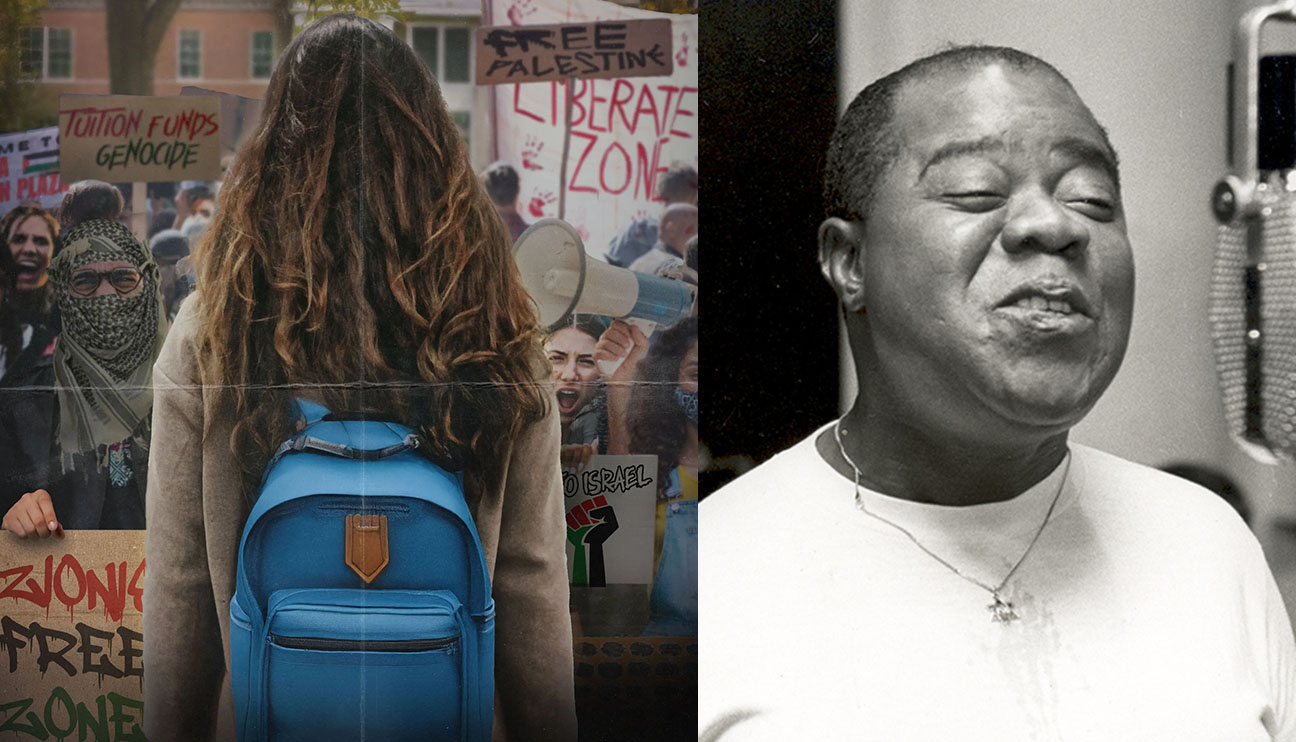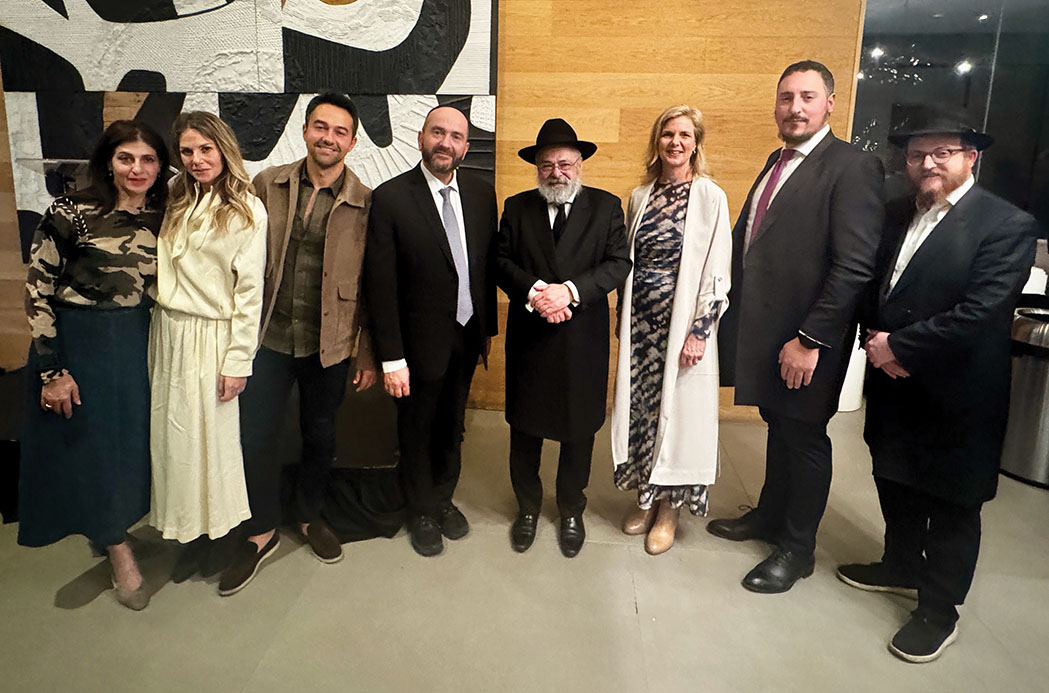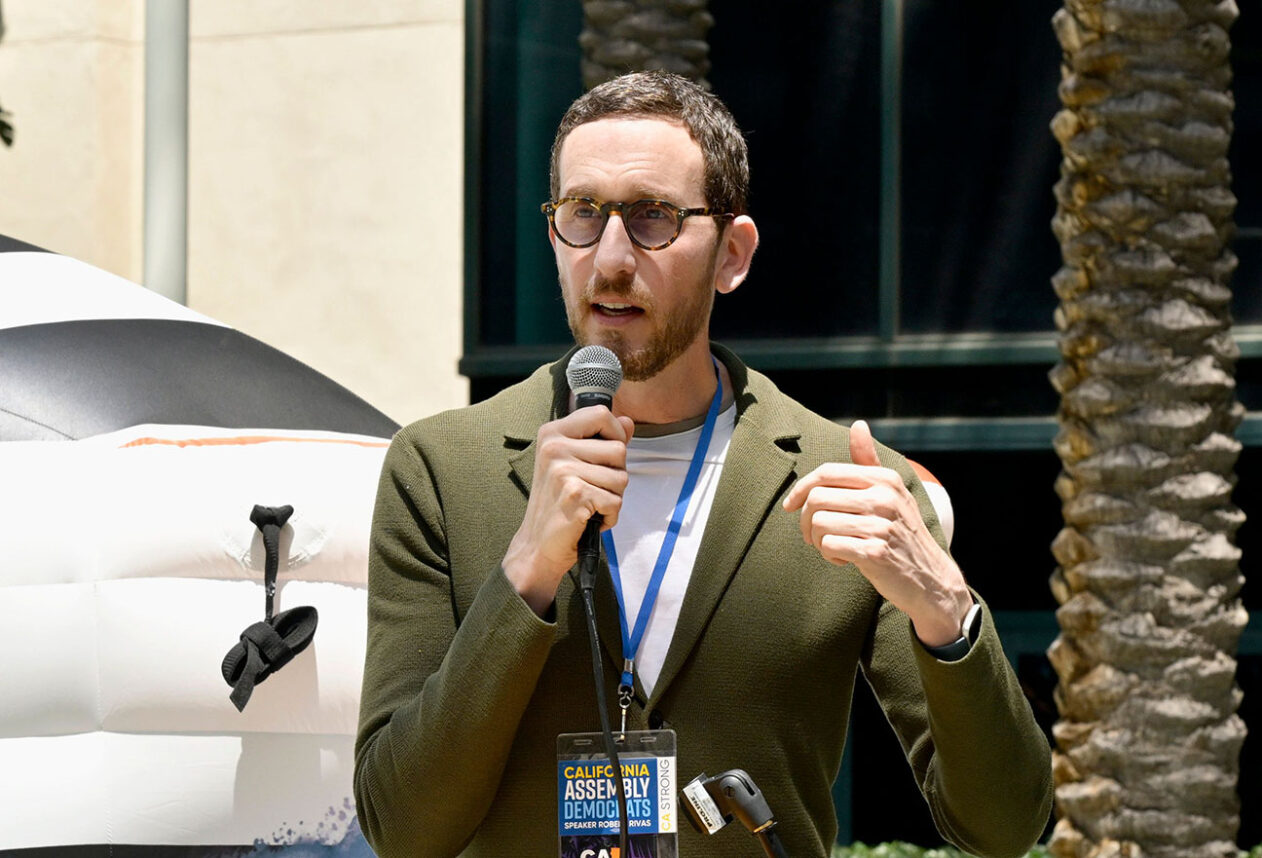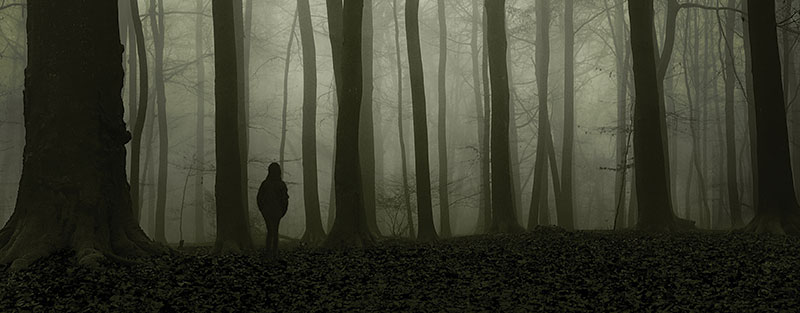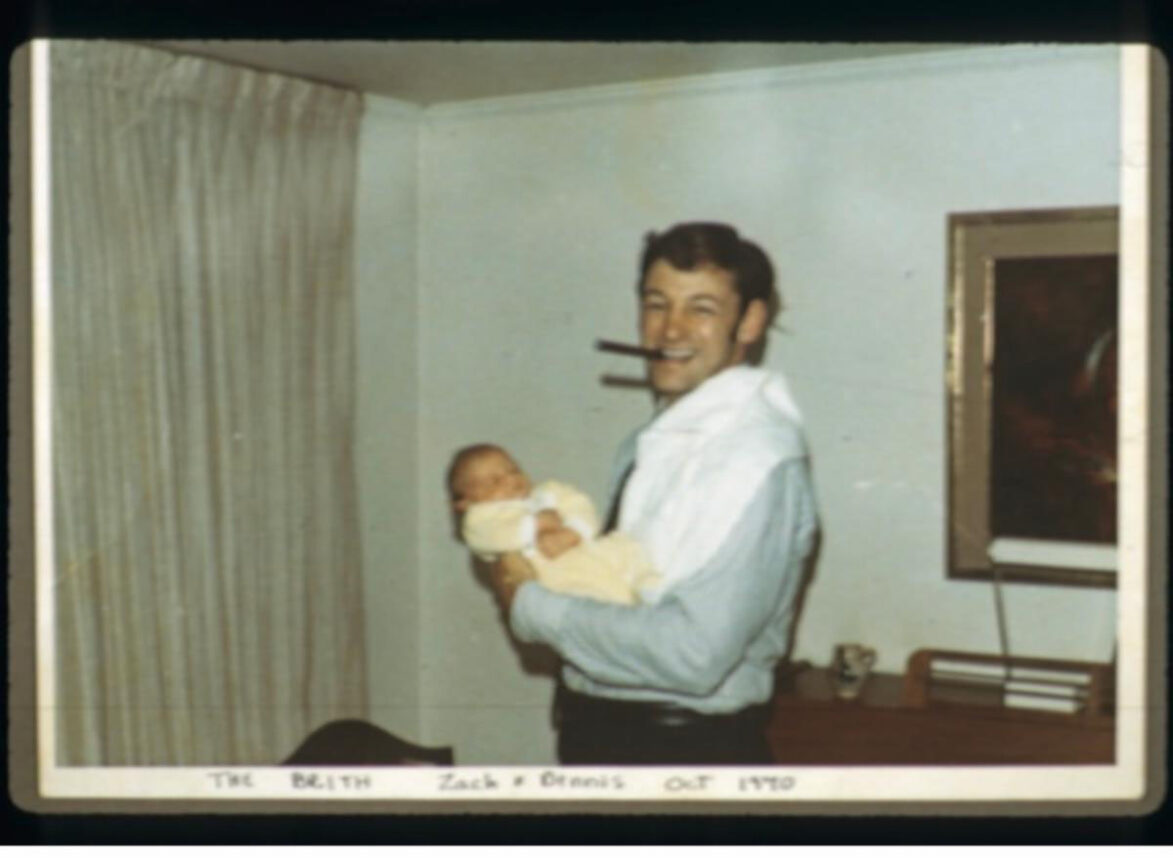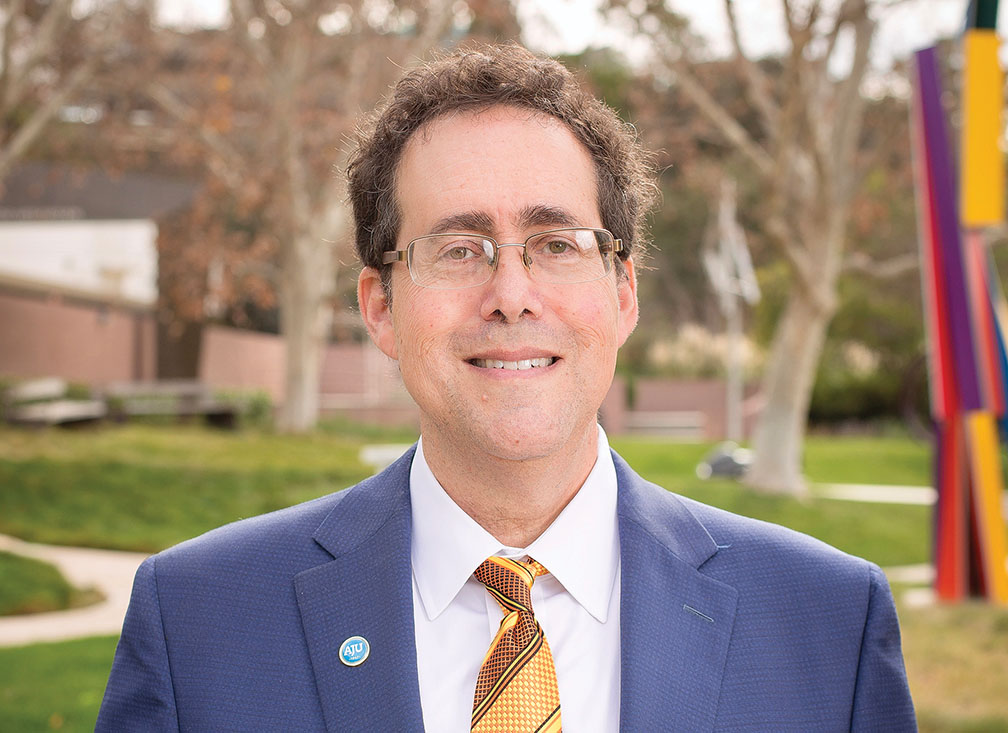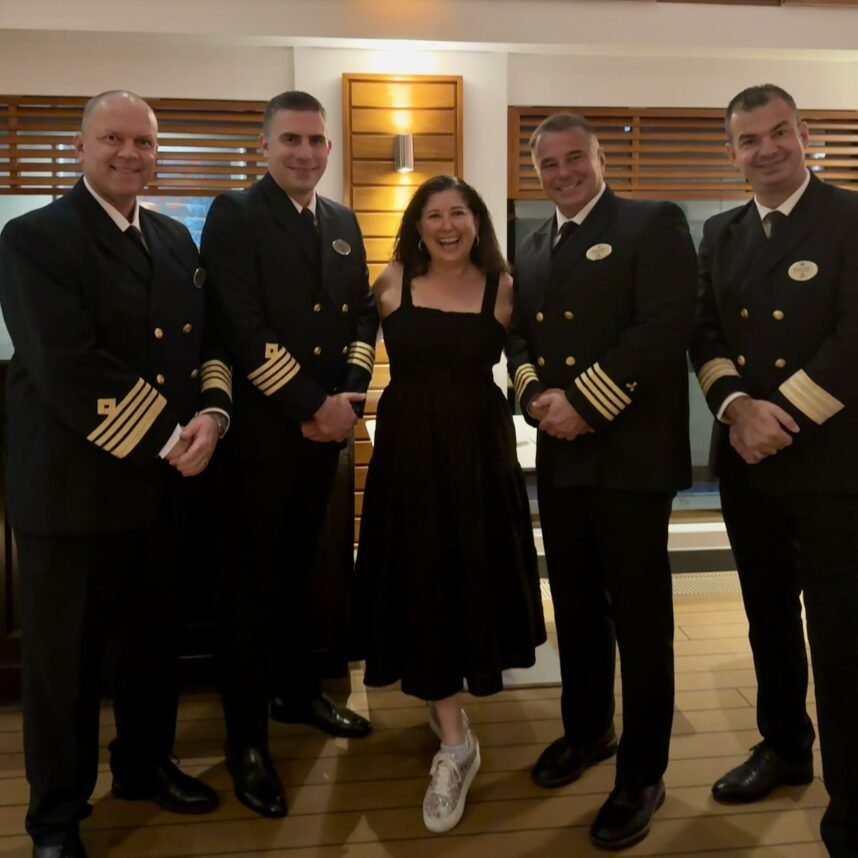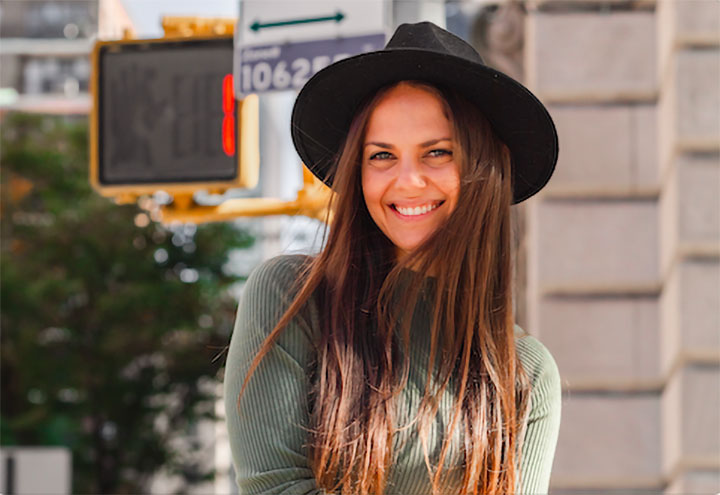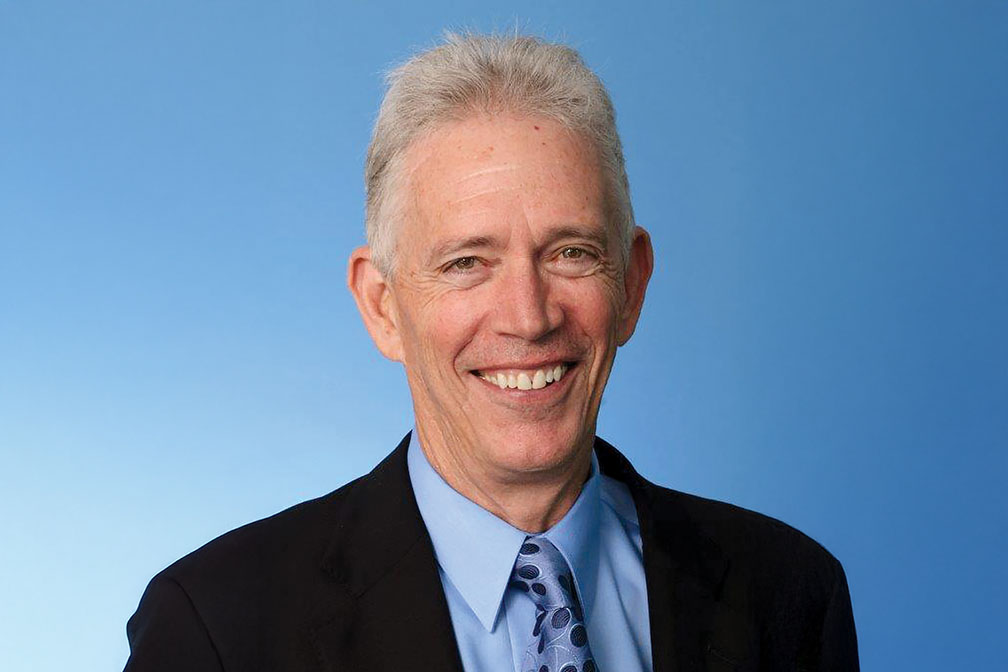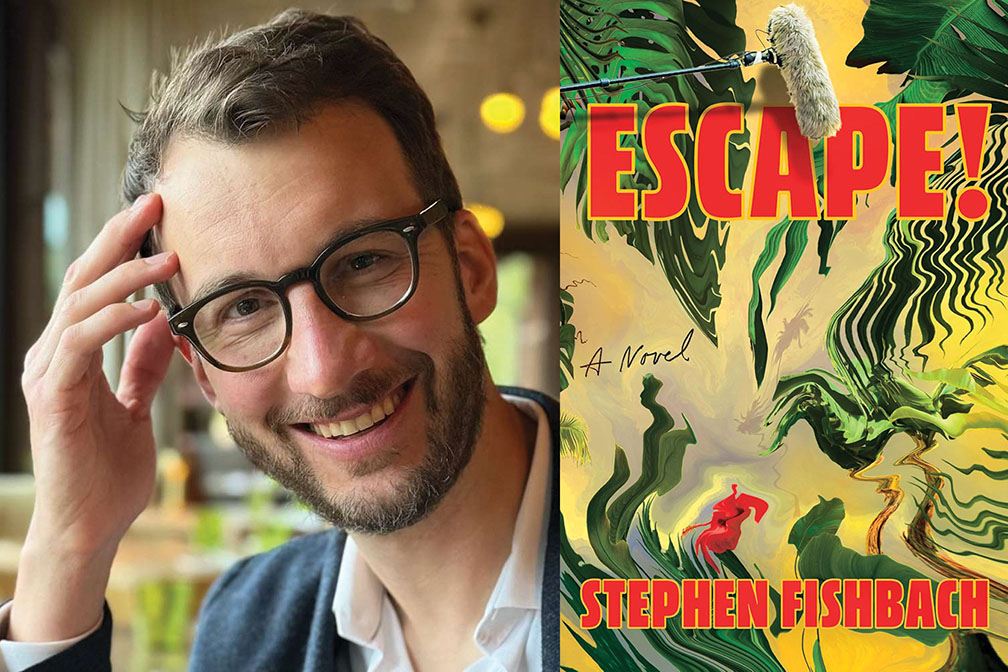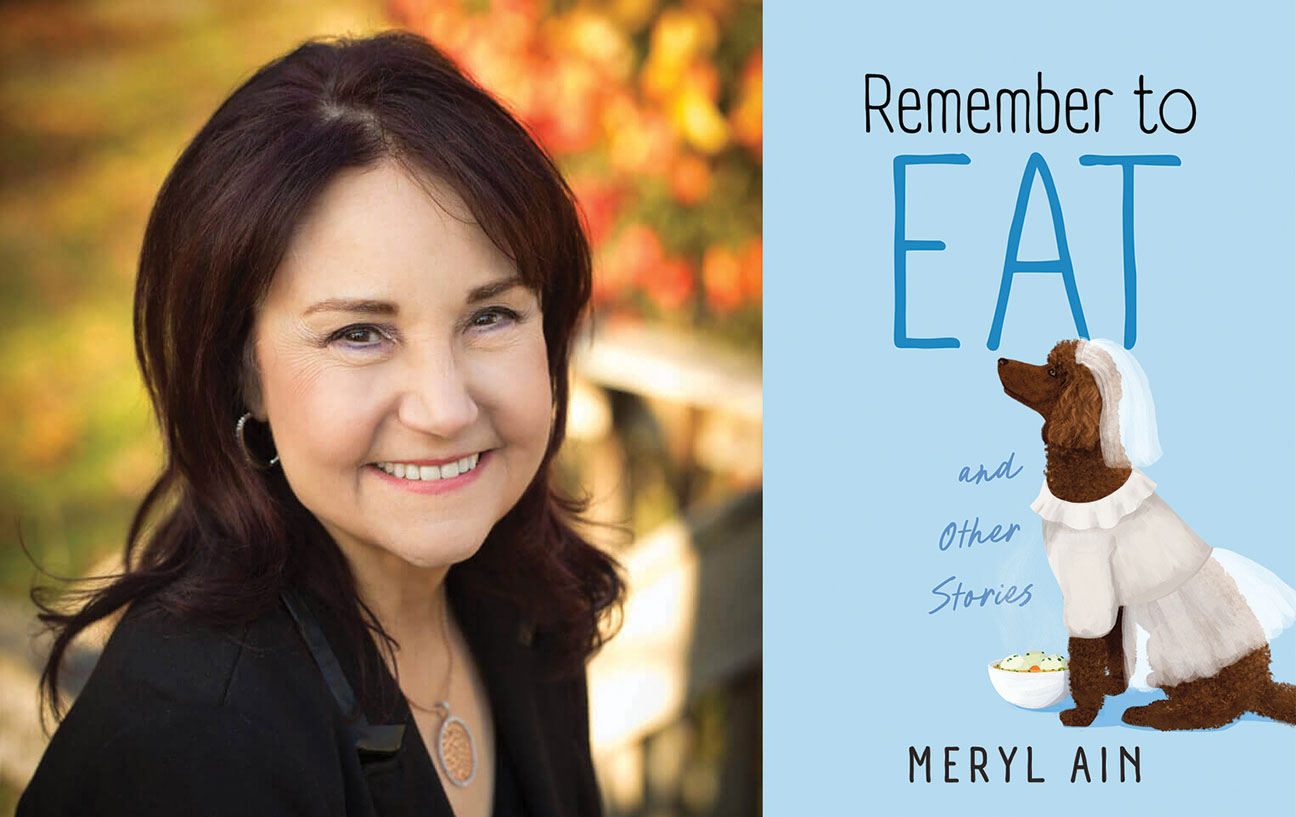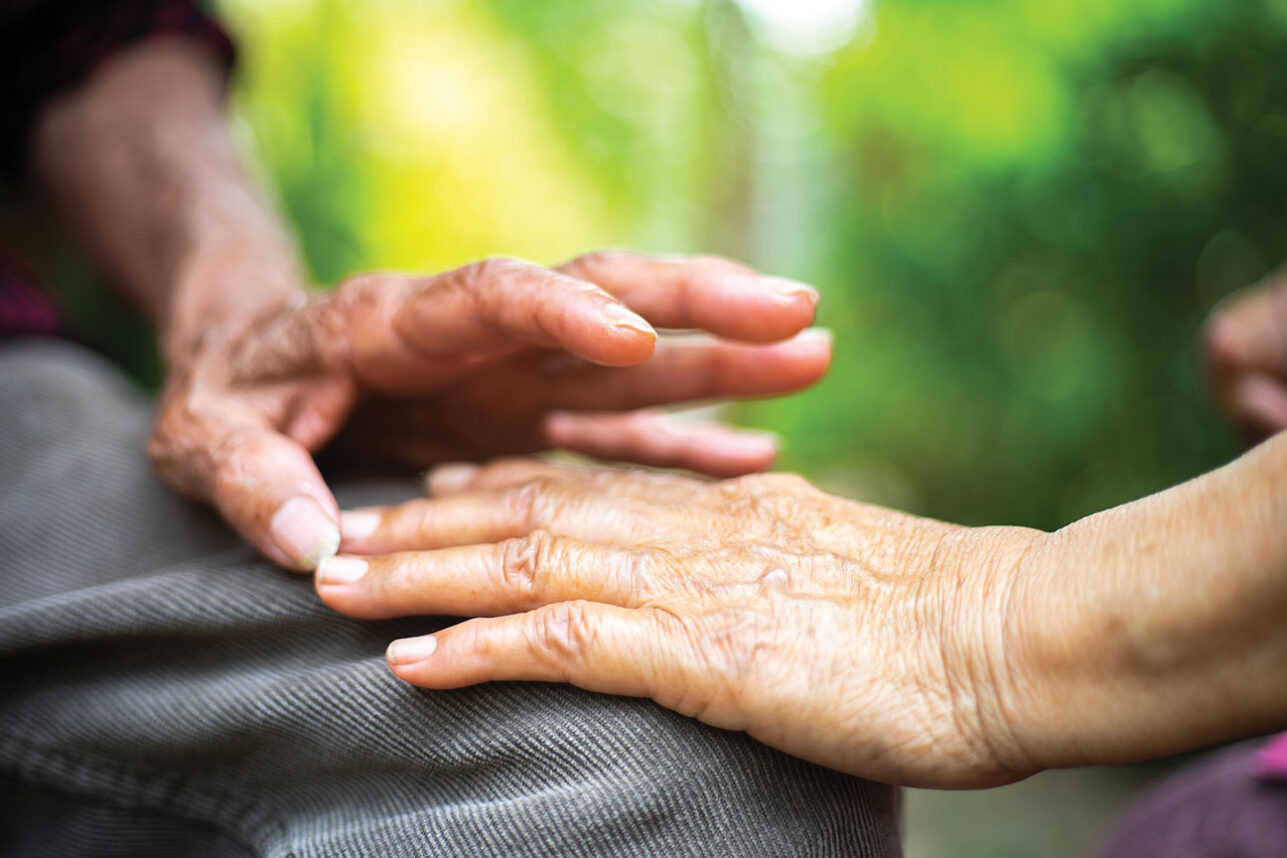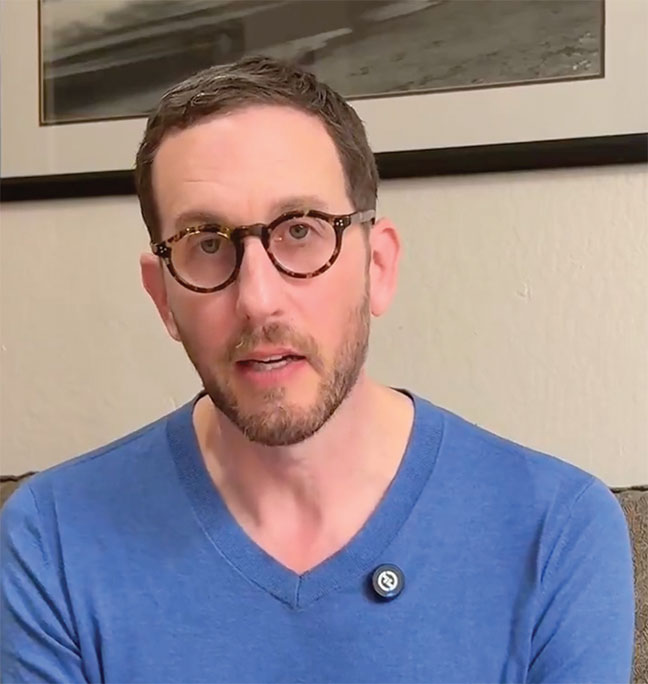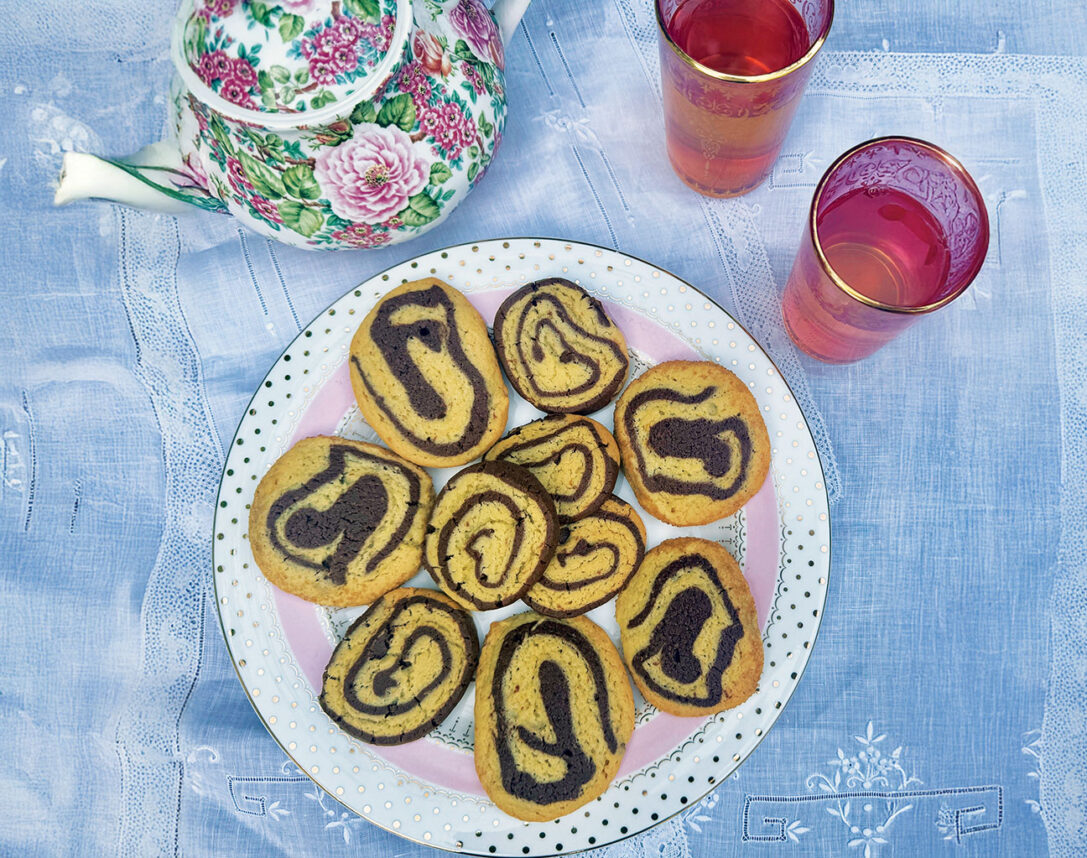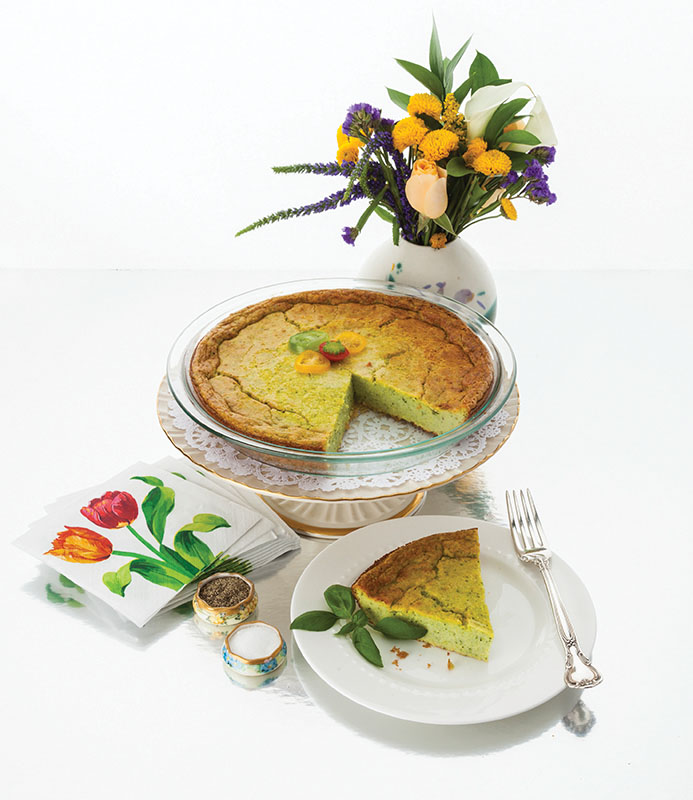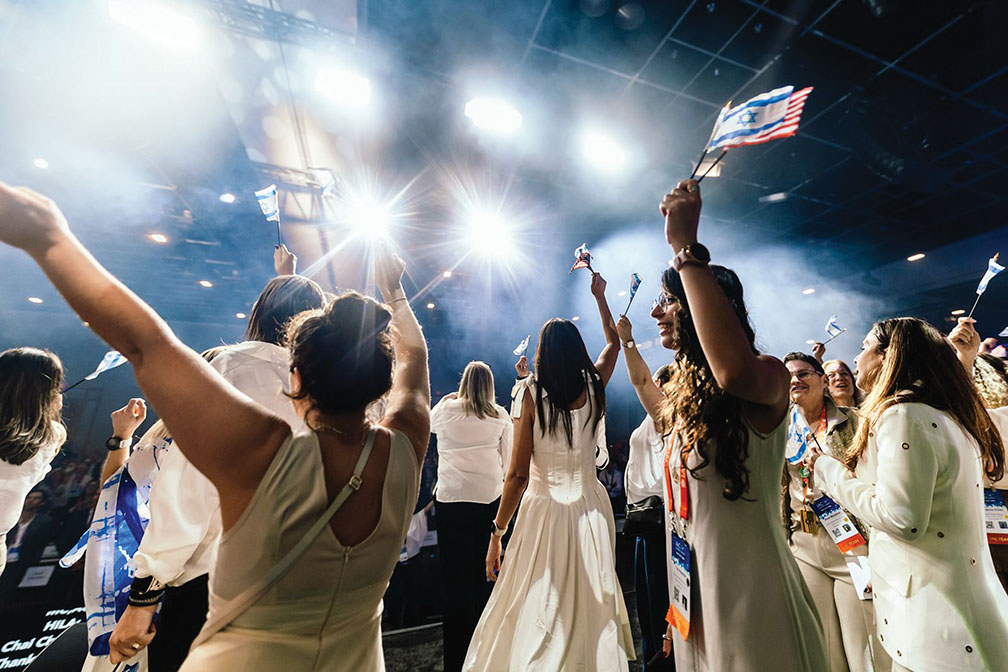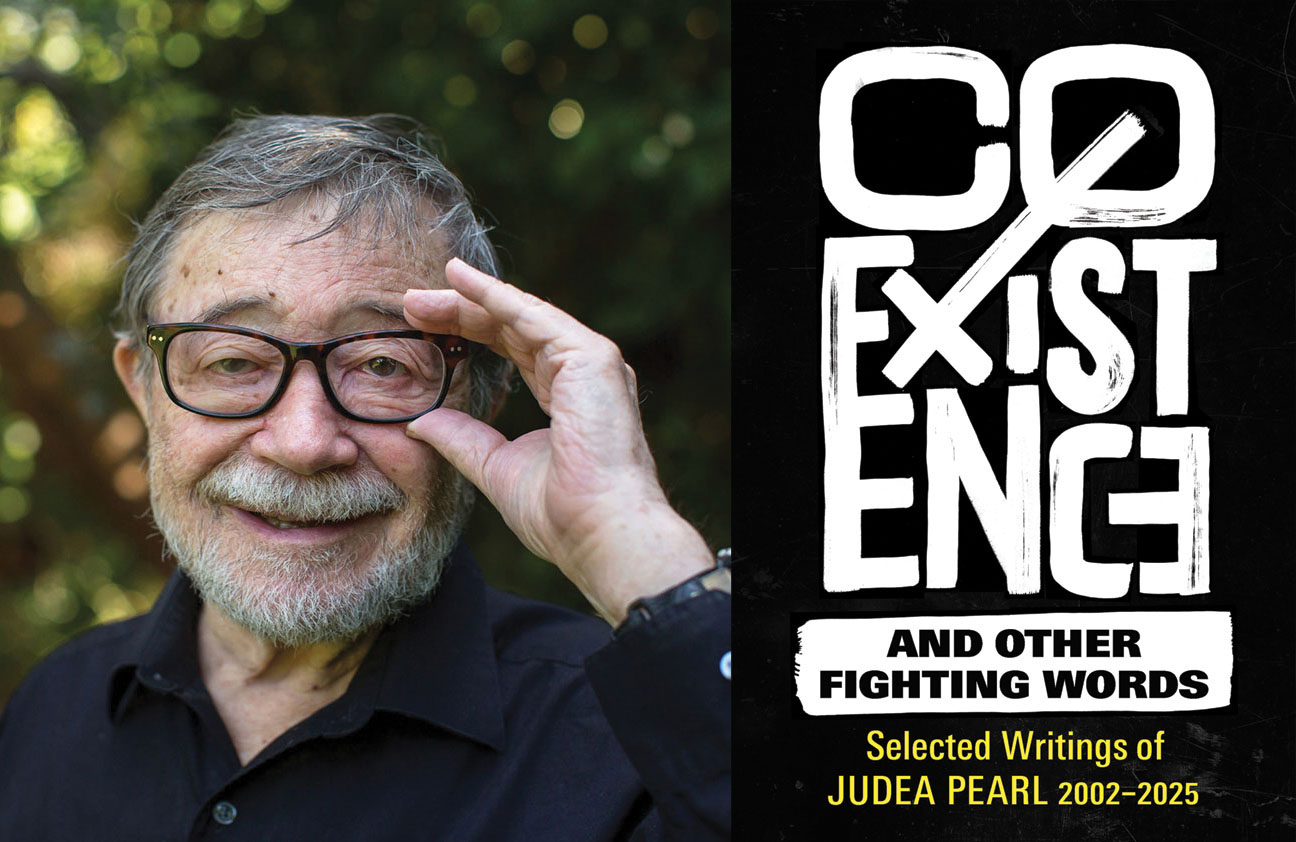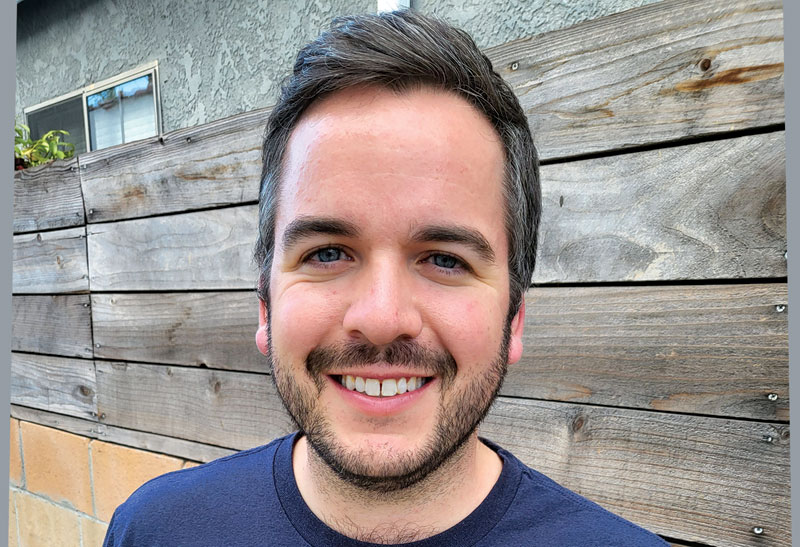
Rabbi Brett Kopin has been teaching at the Milken Community School for more than three years, but he almost didn’t make it past the first day. He started out feeling confident, telling himself “I’ve got this” as he walked into the classroom. That feeling didn’t last.
“Nothing is more terrifying,” the Chicago native told The Journal, “than going into your first class ever on a Monday at eight in the morning, and 23 15-year-olds are sitting there staring at you. They are, like, ‘who the hell is this guy?’” Recalling the moment and laughing, he said “I was lucky because it was August of ’21 and we still had to wear masks. I was grateful for my mask so they couldn’t see how nervous I was.”
He was so anxious he couldn’t sleep, telling himself that with his next class “I have to bring gold. This has to be great.” It took nearly a month and a half for the tension to ease. “As I started to get to know the students and get more comfortable, “he said, “I completely fell in love with the classroom.”
Not that there weren’t bumps along the way. He was teaching Honors Chumash (Torah) to 10th graders, a high-level Chumash course to ninth graders, five classes total. When told he needed to create “Lesson Objectives,” out of hearing range, he asked, “Like what is that?”
He learned how to master those skills, because “they are incredibly valuable as a rabbi.” And he decided that instead of sitting behind a desk for another year, “I am going to throw myself into the fire and learn to be a teacher.”
At the end of his first year, Rabbi Kopin was searching for other jobs. There were pulpit opportunities … but the lure of teaching had captured him. He decided to stay at Milken. He’s close to his high school English teacher, who advised him to “enjoy the paradise of the classroom.” After that rough year, he has learned what his mentor meant by “paradise”: “When you hit the magic, and there is energy between you and your students, the 15-year-olds, and there is back-and-forth, it is magic. You see their minds are opening. You realize you did that.” If you’re doing well, he said, “your students will tell you – they will give you reviews in real time.” By the same token, “when a couple of students tell you this is their favorite class, it boosts your confidence.”
Students,” Rabbi Kopin said, “don’t know that. You think teachers are stoic. They don’t have feelings. They just give you grades. But if you boost up your teacher and say ‘you’re my favorite teacher,’ or ‘this is my favorite class,’ they are going to keep bringing it because you are getting positive feedback from them. And then I think to myself ‘They have bought in. Now I can take them deeper’ because that’s where they want to go.”
“If you boost up your teacher and say ‘you’re my favorite teacher,’ or ‘this is my favorite class,’ they are going to keep bringing it because you are getting positive feedback from them.”
Now in his fourth year, Rabbi Kopin appears set for a long run at Milken. “I am teaching three classes because I love teaching,” he said.
As with any job he said “there will be aspects you love, aspects you don’t love. I feel like what I have done at Milken is preserve the core of what I love, being in the physical classroom with students.”
There’s another reason why Rabbi Kopin feels so positive. This summer, he and his wife, Rabbi Sofia Zway, welcomed their first child, a daughter.
A year ago, Rabbi Zway became the leader of a new Base house in Los Angeles’ Picfair Village neighborhood. Base, a program of the international Moishe House, is a network of congregations – led by couples — for young Jews in their 20s and 30s. They meet monthly in homes.
Rabbi Kopin recalled last February when the couple decided it would be nice to host a Kabbalat Shabbat musical service outdoors, in the backyard, instead of their living room.(Tori Greene, a rabbinical student at Hebrew Union College, organizes the five- to six-piece band.)
“It was really cold,” he almost shivered. “We had about 27 people, a really big success. The second one drew 35. Forty the month after. “Then we took a risk. We capped it at 40 but we had a wait list of 12. We let all of them in, 52 people. My wife went to France – and I just opened up the gates. We capped it at 50 and had a wait list of 15.”
Now Rabbi Zway and Rabbi Kopin are up to 65 people. “Completely magic,” he says.
On the last Friday of the month, they hold what Rabbi Kopin describes as “an unbelievable Kabbalat Shabbat service.” Starting at 7 p.m. “on the dot,” they start the service, Rabbi Kopin said. “After that is an optional Ma’ariv. First time we had five. Now it’s up to 25. We didn’t want to force it on people. Then we do Kiddush followed by a gourmet dinner until about 9:30.”
That’s not all. He was stunned, happily, the first time he walked into his living room where 30 people were singing niggunim and zemirot (Hebrew melodies). Guests don’t leave until midnight or 12:30. “It’s magic,” he said.
Rabbi Kopin, striving to build a community of breadth and depth, recently launched an in-person yeshiva program with 10 Base members participating – so far.
Fast Takes with Rabbi Kopin
Jewish Journal: Do you have unmet goals?
Rabbi Kopin: I am looking for support to start yeshiva learning program. The website is six11.org. Also for someone to support the band (brett.kopin@moshehouse.org).
JJ: Has there been a moment in your life that you keep replaying?
RK: Plenty. I go back to my mentor, Dale Griffith, my English teacher from high school in Chicago. He was one of the few teachers I have had who brought me, in his words “into the paradise of the classroom.”
JJ: What is the best book you have read?
RK: The best novel I have read was “One Hundred Years of Solitude” by Gabriel Garcia Marquez.










